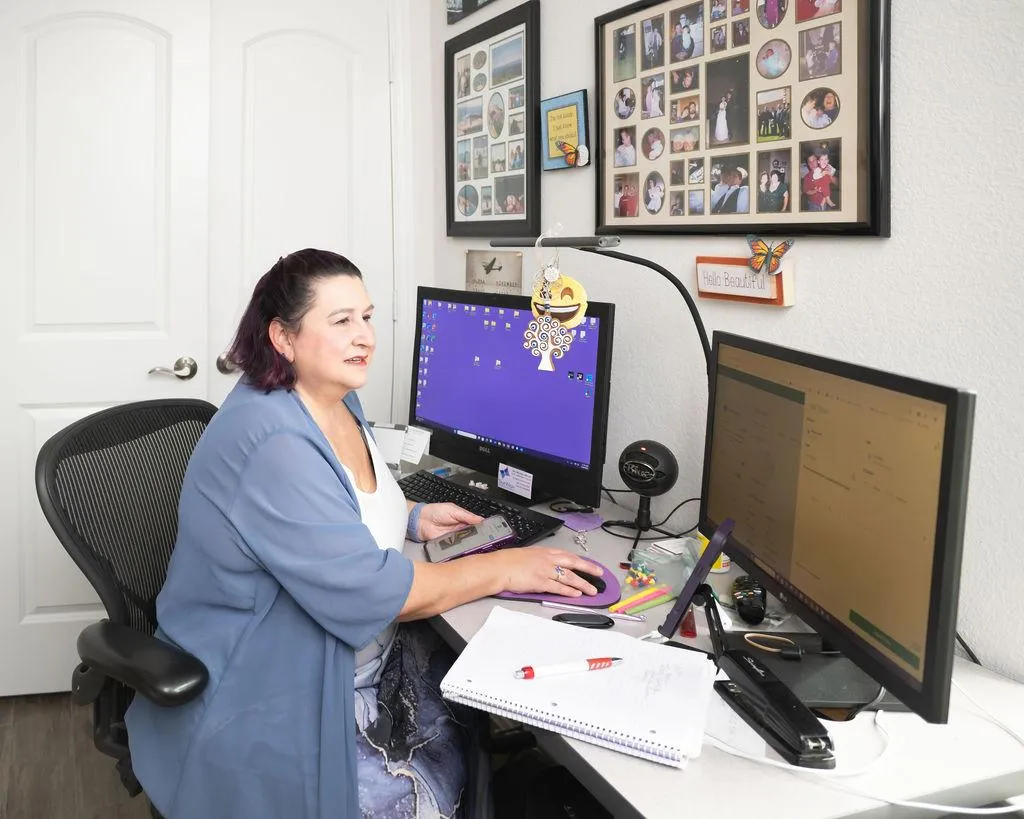Struggling in a healthcare crisis? Click here now →


Mental Health Is Health: How Advocates Support the Whole You
Mental Health Is Health: How Advocates Support the Whole You
Let’s Talk About the Whole Picture
When most people hear “mental health,” they think of buzzwords: stress, anxiety, depression. Maybe therapy. Maybe medication. Maybe something that’s “for other people.”
But the truth is, mental health isn’t something reserved for extreme cases or crisis moments. It’s something we all carry with us—every single day.
Mental health shapes how we think, feel, relate to others, and navigate the world. For patients managing chronic illness or navigating recovery, and for caregivers who bear the emotional and physical load of support, mental health is deeply intertwined with overall health outcomes.
How we process stress, make decisions, and show up to care settings is directly influenced by our emotional and psychological well-being. And yet, mental health is still too often dismissed, delayed, or diminished in healthcare conversations.
That’s where advocacy comes in. A patient advocate sees beyond the chart. We hold space for the whole person—your body, your mind, your emotional terrain—and we walk with you through all of it.

What Is Mental Health, Really?
Mental health is not a luxury. It’s not an afterthought. It is a vital component of your total health—just as essential as your heart, your lungs, or your immune system.
Strong mental health doesn’t mean being happy all the time. It means having the resilience to cope, the clarity to decide, and the capacity to care for yourself and others. When mental health is struggling, even small tasks—making a phone call, preparing a meal, getting out of bed—can feel impossible.
Mental health challenges are not a failure. They are not a personal flaw. They are a natural human response to stress, trauma, loss, and imbalance.
Mental health includes:
- Emotional well-being: how you manage feelings like anger, grief, joy, and fear
- Psychological well-being: how you interpret the world, your past, and yourself
- Social well-being: how you connect with others, set boundaries, and seek support
Mental health also shows up in the body:
- Sleep issues (too much or too little)
- Digestive problems or appetite changes
- Fatigue or brain fog
- Muscle tension or chronic pain
- Racing thoughts or irritability
Sometimes, mental health doesn’t feel like “sadness” or “worry.” It feels like physical shutdown. It hides in over-functioning, people-pleasing, or withdrawal.
And whether or not you have a formal diagnosis, your mental health still matters.
Understanding Mental Health: Diagnosable Conditions vs. Everyday Struggles
Mental health isn’t black and white. It doesn’t exist in extremes or checkboxes. It’s a spectrum — and everyone lives somewhere on it.
On one end are clinically diagnosable mental health disorders.
On the other are the everyday emotional challenges that may not meet diagnostic criteria but still affect how you think, feel, and function.
And in between? A whole range of lived experiences that shape your well-being.
All of it is real. All of it matters. And all of it deserves care.
Diagnosable mental health conditions are identified by clinical criteria, usually based on guidelines like the DSM-5. These are medical conditions—not character flaws—and they benefit from a combination of professional interventions, such as therapy, medication, and long-term support.
Examples include:
- Major Depressive Disorder (MDD)
- Generalized Anxiety Disorder (GAD)
- Post-Traumatic Stress Disorder (PTSD)
- Bipolar Disorder
- Obsessive-Compulsive Disorder (OCD)
These conditions can affect how you think, sleep, connect, and function—and they are treatable with appropriate care.
But you don’t need a diagnosis to be struggling.
You might be grieving. Burned out. Stuck in survival mode. Struggling with chronic stress or emotional numbness.
These are not just “bad moods.” They are signs that your emotional bandwidth is depleted—and they deserve support, too.
If it’s affecting your daily life, your energy, or your peace of mind—it’s serious enough.
A patient advocate can help you identify where you are on that spectrum and guide you toward the right kind of support—without judgment and without delay.
What Mental Health Can Actually Look Like
Mental health struggles aren’t always loud. They can be quiet, subtle, even invisible to those around you.
They might look like:
- Constant overthinking or self-doubt
- Avoiding texts or calls because conversation feels overwhelming
- Withdrawing from people or responsibilities
- Trouble eating, sleeping, or staying focused
- Feeling numb, disconnected, or agitated
- Smiling in public, but spiraling in private
If this sounds familiar, know this: you are not broken. You are carrying something heavy—and that deserves care, not judgment.

Why Mental Health Support is Important
It’s time to recognize that supporting mental health isn’t optional. It’s fundamental. Whether you’re undergoing a procedure, navigating a new diagnosis, or living with chronic symptoms—how you’re feeling emotionally is just as critical as what’s showing up in your test results.
Mental health concerns can influence treatment compliance, communication with providers, and even recovery timelines. Someone who is depressed might struggle to follow through with medications. Someone experiencing trauma might avoid appointments altogether. And someone who feels unheard or overwhelmed may simply shut down.
That’s why mental health must be woven into the care plan—not tacked on later as an afterthought. And it’s why patient advocates are uniquely positioned to notice what might otherwise go unseen: the fatigue in your eyes, the hesitation in your voice, the unspoken need for emotional safety.
That’s where advocacy comes in. A patient advocate sees beyond the chart. We hold space for the whole person—your body, your mind, your emotional terrain—and we walk with you through all of it.
We’re not just looking at lab results. We’re listening between the lines.
The Overlap Between Physical and Mental Health
When we think of health, it's easy to imagine a checklist: blood pressure in range, weight stable, no major symptoms. But this physical lens is incomplete without acknowledging how much mental health shapes the body—and how much the body reflects the mind.
Stress, anxiety, and unresolved trauma don’t just live in the brain. They live in the nervous system. They show up as muscle pain, high blood pressure, inflammation, and chronic illness flares. They impact how your immune system functions and how well you recover from injury or surgery. For many patients, the emotional toll of illness is as debilitating as the illness itself.
Imagine living with chronic pain and constantly being told “your tests look fine.” Imagine feeling helpless in a room full of specialists who never ask how you’re coping. Mental health care fills the gap between symptoms and support. It addresses the invisible weight patients often carry long after they leave the clinic.
This is where the role of a patient advocate becomes crucial. We don’t just ask about medications. We ask, “How are you really feeling?” We create space for the tears that don’t fall during exams. We help connect the dots when a patient doesn’t know if their fatigue is from medication, depression, or both.
We also help providers see the full picture. A patient who appears “non-compliant” might actually be overwhelmed. Someone skipping appointments may be avoiding care due to trauma. Advocacy translates the unspoken into actionable steps. It brings humanity back to healthcare.
A whole-person approach means understanding that healing doesn’t happen in isolation. It happens when the mind and body are supported together—when people are treated with dignity, not dismissal.
Mental health advocacy is about presence, not just process. It’s about recognizing that someone can look “fine” on paper and still be suffering deeply. And it’s about helping individuals, families, and providers build a bridge between emotional needs and clinical care.
Whether you’re recovering from a surgery, navigating a new diagnosis, or managing a long-standing condition, your mental health is part of the journey. You deserve support that sees the full scope of your humanity—not just your symptoms.

Small Steps That Support Mental Health
You don’t need to overhaul your life to support your mental health. Start small. Start with what’s within reach.
Here are ways to care for your mental well-being today:
- Eat: Stable blood sugar supports stable mood. Choose nourishment.
- Move: Even a short walk or gentle stretch can help regulate stress hormones.
- Sleep: Your brain heals during rest. Wind down and protect your rest space.
- Practice mindfulness: Try deep breathing, prayer, or grounding exercises.
- Talk: Speak with someone who listens—a friend, a therapist, an advocate.
Every step doesn’t have to be perfect. It just has to be consistent. And kind.
What to Do If You’re Struggling
If your mental or emotional state has been weighing you down for more than a couple of weeks—or if you’re having trouble functioning day to day—it’s time to reach out.
You don’t have to wait until you’re in crisis. You don’t need the “right words.” You just need a starting place.
Here are a few options:
- Tell someone you trust
- Talk to your doctor or a member of your care team
- Reach out to a patient advocate who can help connect you to support
- Call or text 988 or start a chat online to connect with a trained crisis counselor. The Lifeline provides 24-hour, confidential support to anyone in suicidal crisis or emotional distress.
There is real help. And there is real hope.

You Are Not Alone. A Patient Advocate Can Help.
Mental health is health. Whether you’re living with anxiety, navigating a diagnosis, caregiving for a loved one, or feeling overwhelmed by daily life—your emotions are valid.
You deserve care that sees beyond symptoms.
You deserve care that honors you.
Advocates help bridge the gap between what you’re feeling and what your care team understands. We help translate overwhelm into action, silence into support, and uncertainty into a path forward.
Whether you’re facing a new diagnosis, navigating long-term illness, or simply feeling emotionally overloaded by it all, advocacy offers you something vital: someone in your corner. Someone who listens, guides, and stands beside you as you reclaim your voice and your health — on your terms.
You don’t have to do this alone. And you were never meant to.
Reach out. Let us walk with you.
At SunNav Healthcare Advocates, we believe in care that sees all of you — mind, body, and spirit. Whether you're feeling overwhelmed, unsure where to start, or simply need someone in your corner, we’re here to help.
Schedule your complimentary 30-minute consultation
Let’s talk about what’s going on and how we can support you.

Call or Text: 214-273-0091
Email: [email protected]
Learn more or book online at: www.sunnavhca.com
You don’t have to carry this alone.
Let SunNav help you navigate what’s next — with clarity, care, and compassion.
Disclaimer: We do not provide legal or financial advice. For such matters, please consult with a licensed professional. Referrals are available upon request but do not constitute an endorsement.
Note: We have been approved to bill Traditional Medicare as of 6/16/2025






